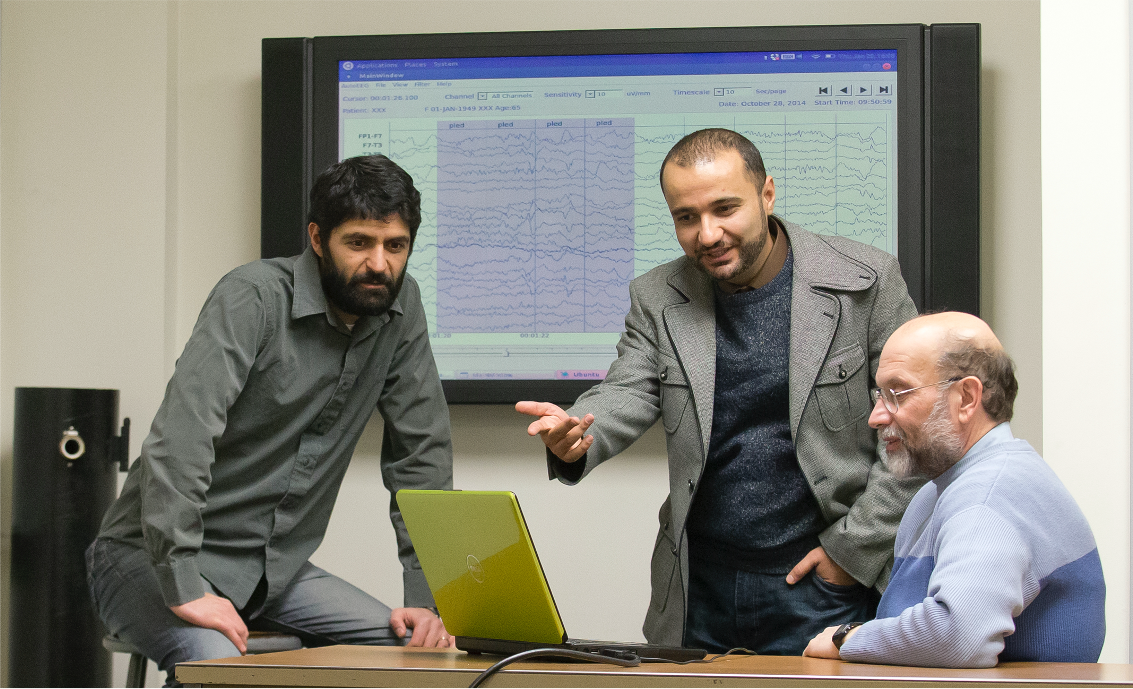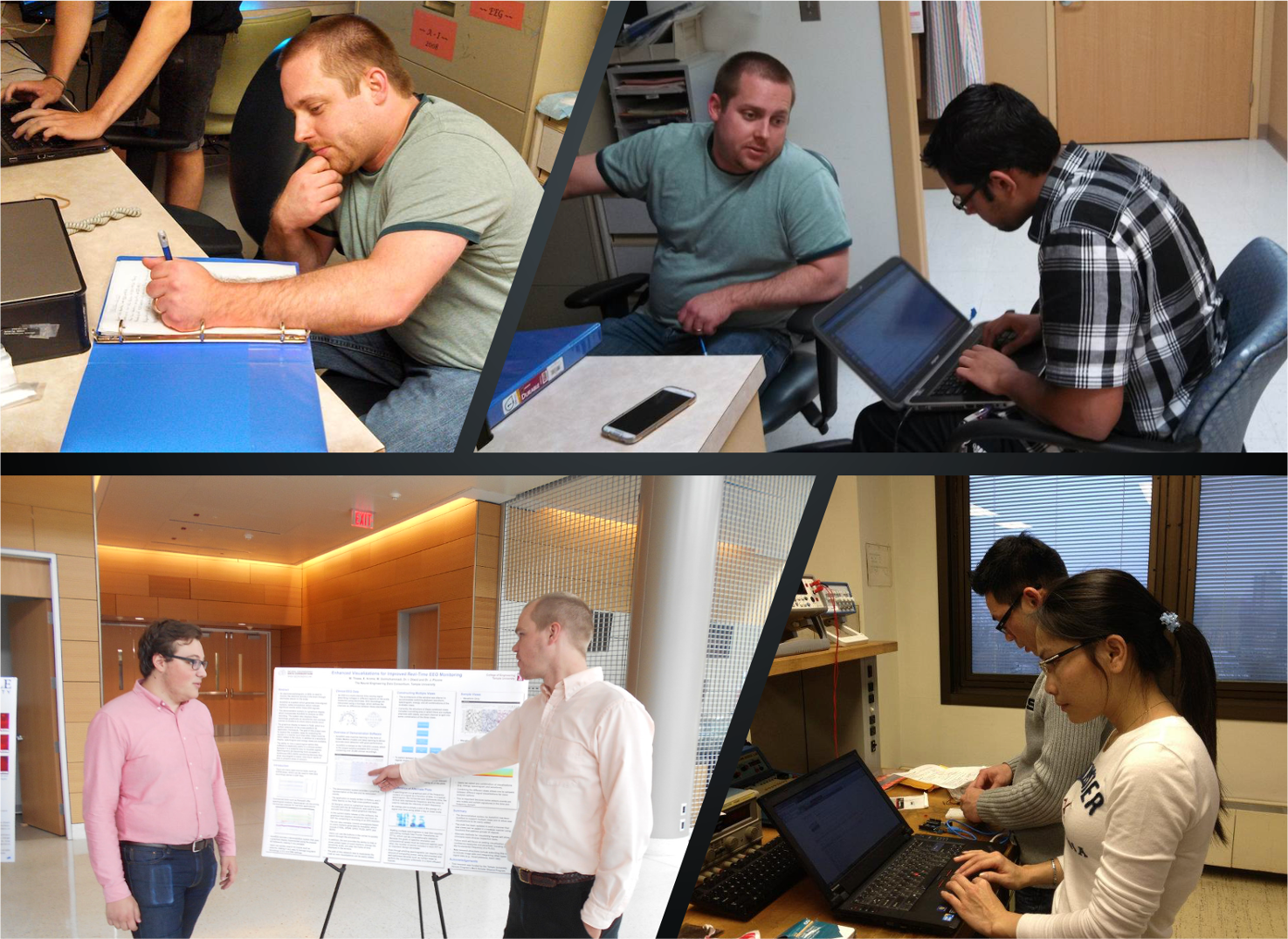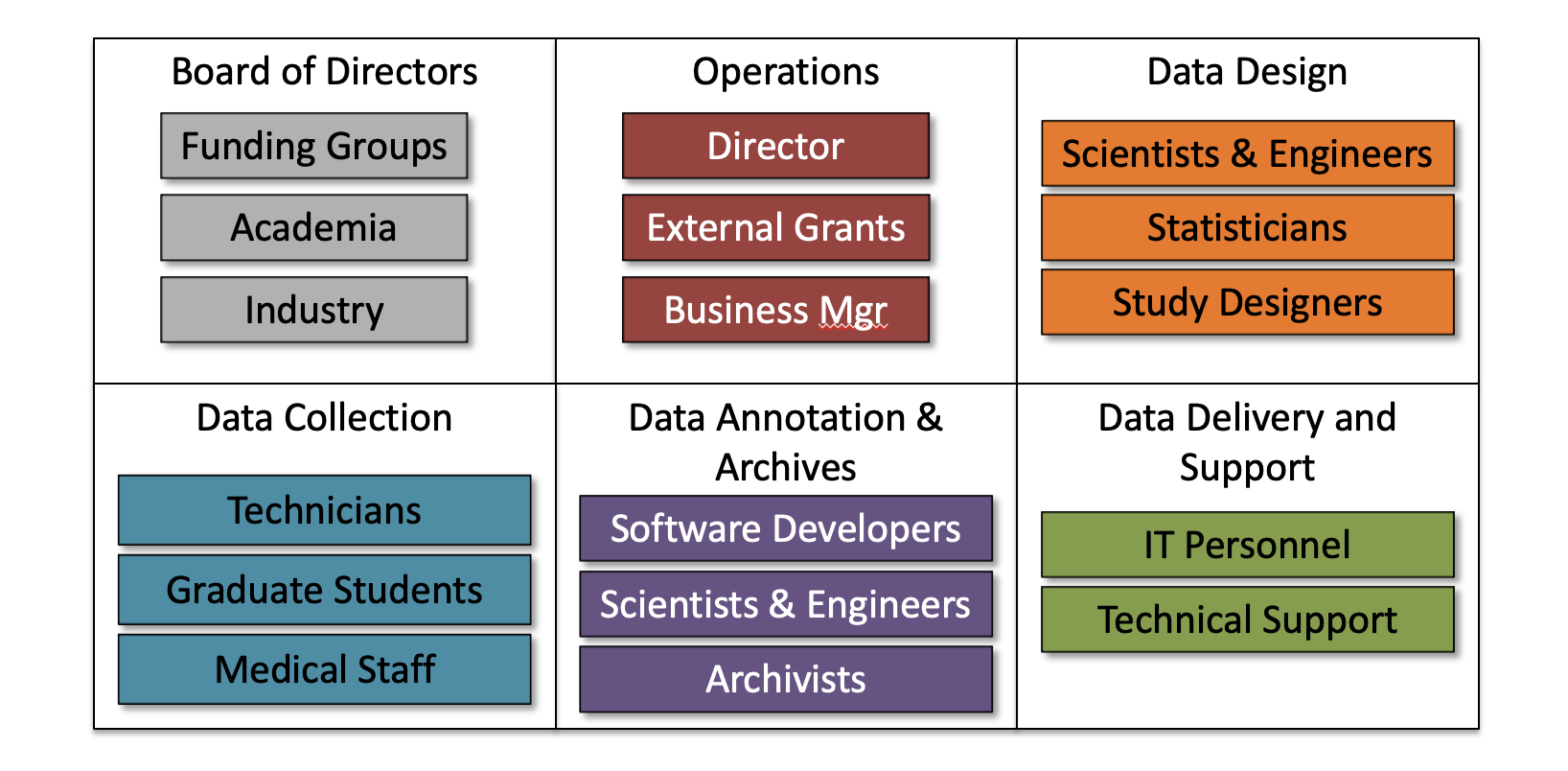About Us
Mission
The Neural Engineering Data Consortium's mission is to focus the research community on high-impact signal and image processing questions in neural and biomedical engineering. We do this through three main efforts:
Our data corpora are meticulously curated and supported by a robust set of software tools that are being continuously improved. Data is released freely and unencumbered to the research community.

Internally, the NEDC’s mission is to cultivate an environment where students at all levels can perform leading-edge research and become disciplined and self-motivated engineers and scientists. Our lab is a place where students come together to learn applicable real-world engineering skills such as software development, teamwork, and communication. If you’d like to know more about our organization, don’t hesitate to contact us.
Founding and History
The NEDC was founded in 2010 by Temple University Electrical Engineering professors Joseph Picone and Iyad Obeid when they grew frustrated with how the lack of data transparency was limiting innovation in neural engineering. Drs. Picone and Obeid started the NEDC with the goal of publishing high quality signal datasets in sufficiently large quantities to train state- of-the-art machine learning and deep learning algorithms. They were motivated in part by earlier successes in other areas such as natural language processing, where community-wide data consortiums had successfully addressed the data needs of the community and measurably spurred innovation.

The NEDC's first project was taking stock of a decade-long CD-ROM archive of clinical electroencephalograms at Temple Hospital. With IRB approval and support from Temple Neurology, the NEDC collected, cataloged, and de-identified tens of thousands of archival EEGs. This became the NEDC flagship data product, the TUH-EEG database. Each EEG record was paired with a flat text physician's report describing clinical impressions of the recording.
The NEDC's work has been funded by DARPA, the National Science Foundation, the National Institutes of Health, the University City Science Center, and the Temple University College of Engineering. We have also worked with numerous corporations, including IBM, who co-sponsored our recent seizure detection data challenge. Community collaboration for standardization and areas of focus remain critically relevant to the NEDC mission.
Philosophy
To spur innovation, data corpora must be sufficiently large and varied to robustly train state-of-the-art deep learning algorithms. They must also be freely sharable, meaning that there should be a minimum of red tape for end users to access and acquire data.
The NEDC is wholly committed to addressing pressing biomedical and clinical problems through data science, the cornerstone of which is common, sharable datasets. At the NEDC, all data is approved for general release without requiring legal agreements or institutional approvals from our end users.
